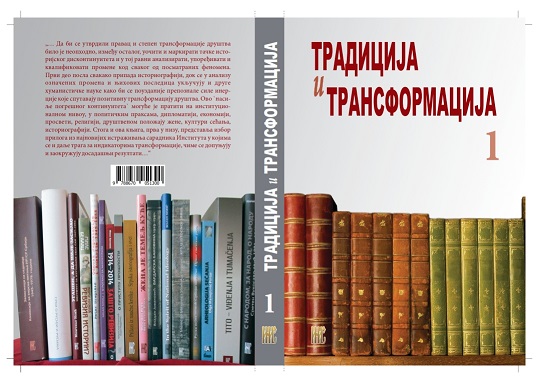Идеолошко-политичке интерпретације средњoвековних тема у уџбеницима историје у Бугарској и у Југославији 1945–1953. Године
Ideological and Political Interpretations of Medieval Theme in History Textbooks in Bulgaria and Yugoslavia, 1945–1953
Author(s): Olivera Dragišić
Subject(s): Social history, History of Education, State/Government and Education, WW II and following years (1940 - 1949), Philosophy of History, Politics of History/Memory
Published by: Institut za noviju istoriju Srbije
Keywords: History textbooks; Middle Ages; Yugoslavia; Bulgaria; Soviet Union;
Summary/Abstract: The ideological and political changes in the Balkans at the end of the Second World War had a great impact on both the publishing policy and the contents of history textbooks. Due to a way in which communism was established in Yugoslavia and Bulgaria, as well as because of changes initiated by the Resolution of IB, the educational publishing policies in these two countries were quite different. The Soviet model of a textbook written by Evgeny Alexeyevich Kosminsky „History of the Middle Ages” was translated in both countries, infl uencing changes in interpretations of national history. The model was introduced in Yugoslavia immediately after the war, as a result of a complex ethnic structure, but also due to a desire of Yugoslav communists to present them as a vanguard in spreading the Soviet influence. On the other hand, since Bulgaria was a country of „people’s democracy” (just like GDR, Poland, or Romania), the Soviet textbook was translated and introduced in history teaching as a consequence of consolidation within the Eastern Bloc after the Tito-Stalin conflict. Since the Soviet textbook was concentrated mainly on general history, neglecting the history of Yugoslav and Bulgarian nations, the education authorities in Sofia supplemented their edition with lessons from national history. After the Resolution of IB, the Yugoslav authorities have approved the writing of new history textbooks in which the history of South Slavs preceded the national history of „new Yugoslavia”. The most radical change in history textbooks in both countries concerned the harmonization of national history with the Marxist ideology. Furthermore, the history of the Byzantine Empire was modifi ed in accordance with the requirements of current ideology, while the question of Bulgarian ethnogenesis has undergone signifi cant interpretive changes: due to ideological requirements during the first post-war decade, modern Bulgarians in Bulgarian history textbooks turned from the people of Turkish origin into a purely Slavic nation. All the textbooks published immediately after the Second World War showed a high degree of ideologization of medieval history.
Book: Традиција и трансформација. Политичке и друштвене промене у Србији и Југославији у 20. веку
- Page Range: 339-364
- Page Count: 26
- Publication Year: 2015
- Language: Serbian
- Content File-PDF

